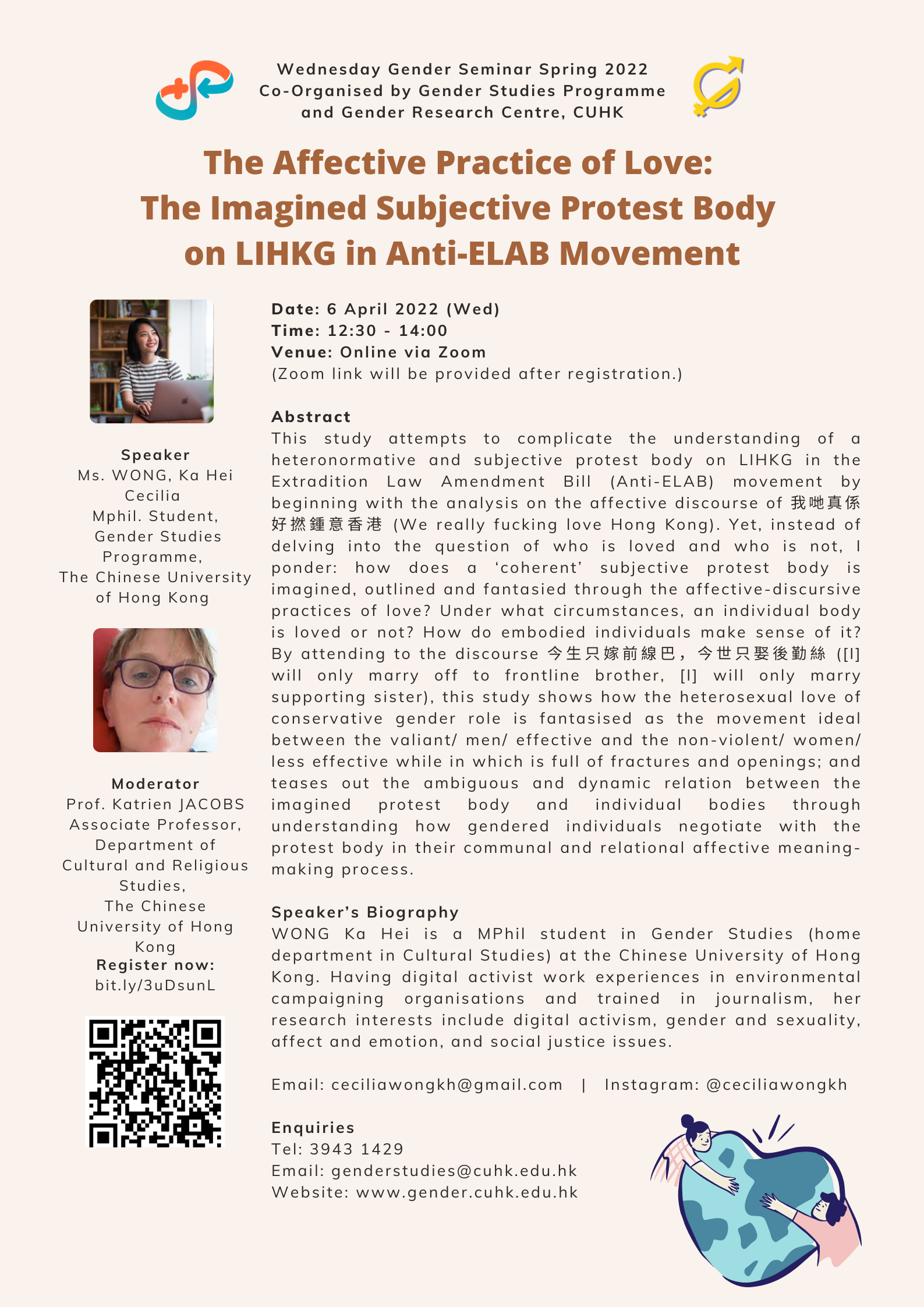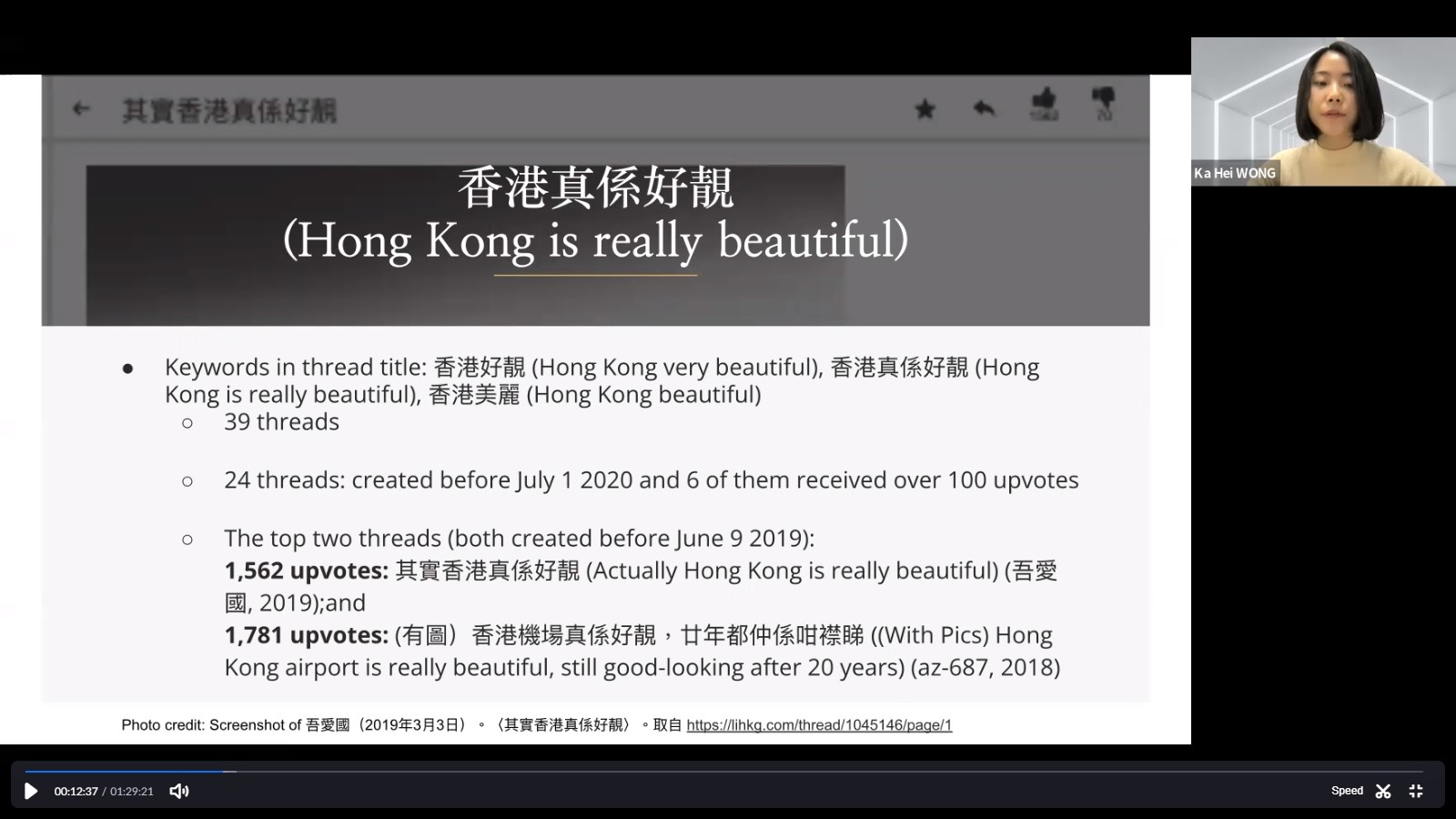Gender inequality related to reproduction is a global issue, and the personal and family spheres, as objects of power control, make individual choices often the result of internalized power structures and gender norms. With the rising number of well-educated women with university degrees and high female labor participation, the fertility rate continues to drop in China. Concerned about the demographic change and the population crisis, the Chinese state turned to pro-natalist policy since 2021, despite the lack of supportive maternity and child-care policies.
This study focuses on young women’s reproductive dilemma posed by patchy patriarchy’s essentialist discourses and their individual desires. It further demonstrates the characteristics of the public cyberspace where women gain knowledge, exchange information and express their opinions about their reproductive experiences. This study also explores the role cyberspace play in shaping gender discourses in contemporary China. Conducted on Douban, a popular forum among Chinese urban young women, the study collected 3153 posts under the topic ‘What does reproduction mean to women?’ and analyzed the most “liked” 100 posts with thematic coding.
The findings suggest that discussions on Douban are predominantly focused on negative experiences of new motherhood. Women are physically and emotionally dehumanized in the process of pregnancy and childbirth. Due to the patriarchal family value and the essentialist gender discourse, motherhood is naturalized and romanticized, which has led to the ‘widow-style childrearing’ and the sacrifice of female individuality and professional career. As a result, in the absence of public support, women have to rely on private sources to address emotional issues and access female-centered reproductive knowledge. The phenomenon of tokophobia presented in online discussions is a resistance to naturalized motherhood. The discussion of childbirth in cyberspace has brought the invisible labor undertaken by women into the public sphere, which is feminist in nature.
Written by: ZHANG, Mengya
1月18日,Xie Kailing博士和Zhou Yunyun博士在线上性别研讨会上讲演了两人正在合作进行的研究——“恐育作为女权抵抗?中国网络空间中女性网民的生殖经验和话语”。两位研究者首先勾勒了研究所处的中国语境,中国独生子女政策使得女性获得高等教育的机会大大上升,虽然在全球范围内,妇女的教育程度与生育率呈负相关,但在中国,异性恋婚姻中女性养育子女仍旧是一种具有道德强制力的社会规范。两位研究者借用Evans所提出的“支离破碎的父权”(patchy patriarchy)这一概念,认为将女性生育职责“自然化”、“本质化”的话语仍旧具有某种权威性,成为国家推行政策时的话术,并在公共文化生活中,例如在售卖母婴用品的广告中被不断地生产和传播。随着出生率下降带来的老龄化危机的初现,自2021年起中国政府转而采取支持生育的政策,女性面临着愈发严峻的生育压力。而市场经济驱动形成的以欲望为核心的现代式的对“自我”的追求,以及中国近年来在年轻女性群体中愈发浩大的女性主义声浪则进一步成为引发女性在网络空间中关于生育激烈探讨的契机。为了探寻受过良好教育的年轻女性对这一生育困境的回应,以及网络空间在这种生育困境讨论中的作用,两位研究者对热度极高的豆瓣主题帖“生育对一位女性意味着什么”进行了的话语分析。在以主题式编码为主的初步话语分析中,研究者们发现大多数的话语都围绕着生育的消极体验及其作为一种“被掩盖的黑暗秘密”展开,并进一步展示了话语群中三个显著的主题:生孩子作为一种肉体和情感上的双重创伤;“丧偶式育儿”剥夺了女性的个体性;缺少女性中心的知识生产和对父权制结构的反思。在讲演的最后,研究者们进一步指出了这一现象的复杂性:回帖中没有出现明显的反对生育的声音,而是更多地集中在经验分享,给予建议和女性的不同的生育选择上,尽管帖子的发表者们并没有明缺自我表明女权主义立场的倾向,但她们关注和讨论着与女权主义紧密相关的议题。研究者们认为,网络空间提供了一种另类的公共空间,使得在社会空间中被迫静默的女性经验相互沟通,女性话语得以建构。
Written by: ZHENG, Lin





A
A
A
Contact Us